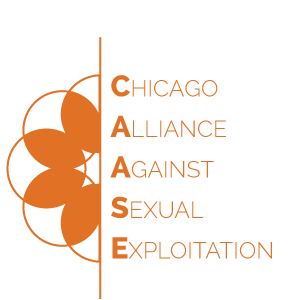7 Ways Economic Hardship Fuels Sexual Harm
Sexual harassment, assault, and exploitation impact people across all walks of life. However, there’s a strong connection between economic hardship and vulnerability to sexual violence. Understanding the role financial difficulties can play in sexual harm is key to ending it and another motivator to address poverty.
Here are 7 ways sexual violence is linked to financial insecurity.
Limited Job Opportunities
Limited job options and opportunities create desperate situations, especially for marginalized people with fewer resources. People may feel pressure to accept exploitative and unsafe work conditions to make ends meet. It makes them an easier target for abuse by employers and coworkers who know that if someone is struggling they’ll be even more afraid of losing their jobs. This is especially true for people who face high levels of workplace discrimination through laws and other practices such as Black and trans folks. Some abusive people may even tell victims that they have to stay quiet about harassment or exploitation if they want to keep their jobs or benefits. Workplace harassment and violence is illegal. Survivors have legal options, such as protected time off work, but may not know how to access them.
Dependence and Power Imbalance
When people have to rely on others for financial support or necessities like transportation, food, or housing, it can lead to a power imbalance in relationships. This can make people more vulnerable to abuse by those who control these necessities. For instance, a person who depends on a partner or family member for financial support might find themselves stuck in an abusive relationship, where the abuser uses their control of the money to carry out sexual harassment or assault with little fear of consequences.
Lack of Access to Resources and Services
Economic hardship can limit access to services designed to support survivors of sexual harassment and assault. Victims with limited funds may find it harder to seek help, get legal aid, or join support groups. This lack of resources further isolates them and makes it difficult to break free from the cycle of abuse, making them easier targets for repeat exploitation.
Housing Insecurity
Affordable rent and homes have become harder to find and not having a stable place to live increases the risk for sexual harassment and exploitation. People facing homelessness or living in shaky housing situations are often forced to accept unsafe living conditions, endure harassment from landlords, or have sex in exchange for shelter. Selling or trading sex for a place to stay is not a free choice when the only other option is sleeping on the street. Abusive landlords and sex buyers take advantage of these dire situations. Some states have laws aimed at helping survivors seek safety when their home isn’t but many don’t know their rights and options.
Enduring Harm to Make Ends Meet
People struggling to afford the basics like rent or food may be pushed to make money in risky way. As author and activist Mikki Kendell writes “Hunger, real hunger, provokes desperation and leads to choices that might otherwise be unfathomable.” This includes entering the sex trade where physical abuse, sexual harassment, rape, and exploitation are common. Research shows that prostitution involves such repetitive trauma that post-traumatic stress disorder is more common for people who’ve lived through it than for those who have lived through military combat. Despite this, survivors are often denied help and further abused by law enforcement.
Impact on Mental Health
Stress caused by poverty can take a huge toll on mental health, making people more susceptible to exploitation. Depression, anxiety, and a diminished sense of self-worth can lower a person’s ability to set boundaries, recognize abuse, and counter unwanted advances. All this makes them targets for sexual predators.
Substance Abuse and Exploitation
Economic hardship may lead some people to turn to drugs and alcohol as coping mechanisms. Sadly, substance abuse can put them at even higher risk of sexual harm, as abusers may take advantage of them while they’re high or drunk. It’s important to note, however, that drug and alcohol addiction isn’t typically a reason for entering the harmful sex trade, but a common human response to having unwanted sex. It’s a means of dissociation and self-medication and the overwhelming majority of women step up drug use while selling sex.
Addressing Inequity
The connection between poverty and vulnerability to sexual harassment, assault, and exploitation is a deeply troubling reality that needs urgent attention from all of us, including policymakers and support organizations. Recognizing the linked nature of these issues is key in coming up with solutions that work.
Addressing economic inequality, funding accessible support services for survivors, and increasing awareness about the vulnerabilities created by economic inequity are steps toward creating a safer society. We can work towards a future where no one’s financial status defines their worth or safety.
Getting Help
If you are a survivor of sexual harm and want to learn about your legal options, please call CAASE’s intake line at 773-244-2230, ext. 205, or email legal@caase.org.
Please note that CAASE works on cases that took place in Cook County, IL, and involve victims aged 13+. Minors do not need a parent or guardian’s permission to talk to us. We cannot assist with cases involving criminal defense, family court, or immigration. If we cannot assist with your case, we may be able to refer you to someone who can.
CAASE published this piece on August 10, 2023. It was authored by Hayley Forrestal and edited by Madeleine Behr. Learn more about our staff here.




Pingback: Workers’ Rights Won’t Fix the Sex Trade – CAASE
[…] to providing trauma-informed social services and resources—such as affordable housing, economic opportunity, legal aid, and mental and physical health care—we can create successful paths out of the sex […]